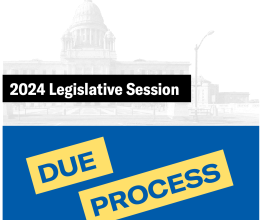The ACLU today filed a lawsuit in federal district court on behalf of a Cranston resident, seeking the return of a variety of lawfully possessed weapons that were seized from him almost nine months ago by police. The lawsuit, filed by RI ACLU volunteer attorney Thomas W. Lyons on behalf of Robert Machado, argues that the Cranston Police Department has violated his right to due process and his right to keep and bear arms by retaining his property without just cause.
In September of last year, police and fire paramedics came to Machado’s house after receiving a call from a friend of his that he might be suicidal. Machado told the police that his friend had misconstrued a conversation they had had, but he agreed to be transported to Our Lady of Fatima Hospital for a mental health evaluation. The examination found no problems and he was promptly released from the hospital. Unbeknownst to Machado, however, police in the meantime seized for “safe keeping” from his home various weapons he lawfully possessed, including firearms and a collection of ceremonial samurai swords.
Eager to have his possessions returned, Machado followed up by obtaining a letter from his psychotherapist that he had never “demonstrated suicidal tendencies or thoughts,” and “there should be no concern” returning his weapons. The police still refused to release them and advised Machado that he would need to obtain a court order to get them back. After further unsuccessful efforts to get his items returned, Machado contacted the ACLU.
The lawsuit claims that the police department’s “customs, policies and practices” of requiring “weapons owners who are not charged with a crime to engage in formal litigation in order to recover their seized property” violates Machado’s due process rights as well as his Second Amendment rights. The suit seeks a court order declaring the police department’s practice unconstitutional and ordering the return of his weapons.
ACLU attorney Lyons said today, “We hope this suit will ensure that Mr. Machado and his fellow citizens will no longer be exposed to violations of their constitutional rights.” Because other police departments may have similar unconstitutional policies, the ACLU expressed hope that the lawsuit would force other departments to reexamine them.





